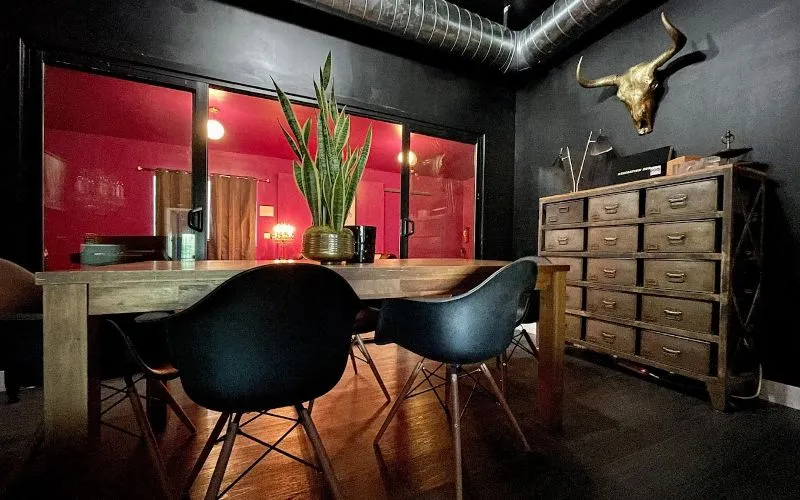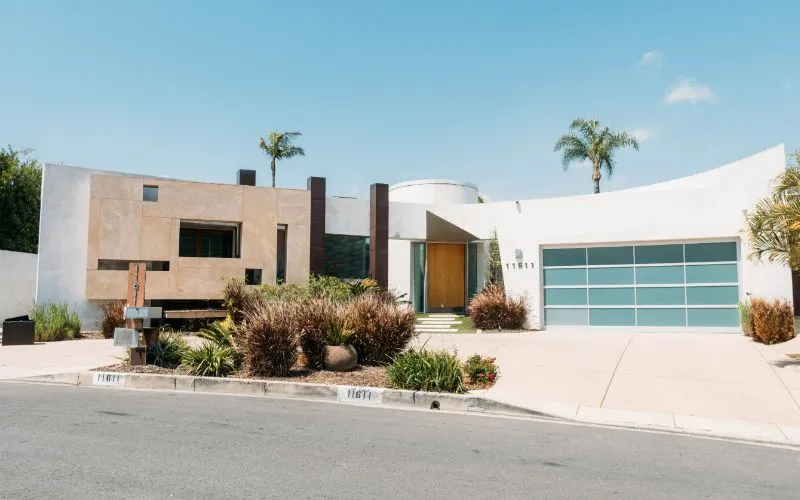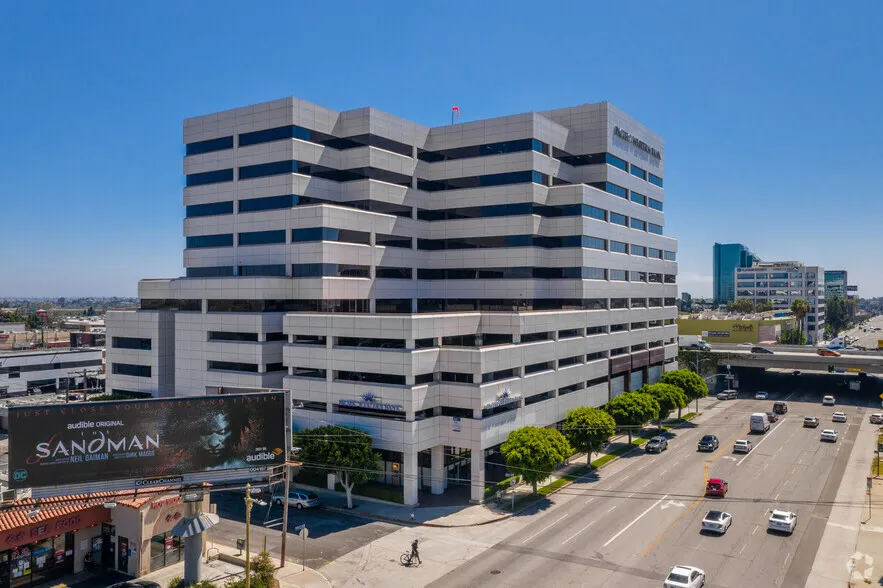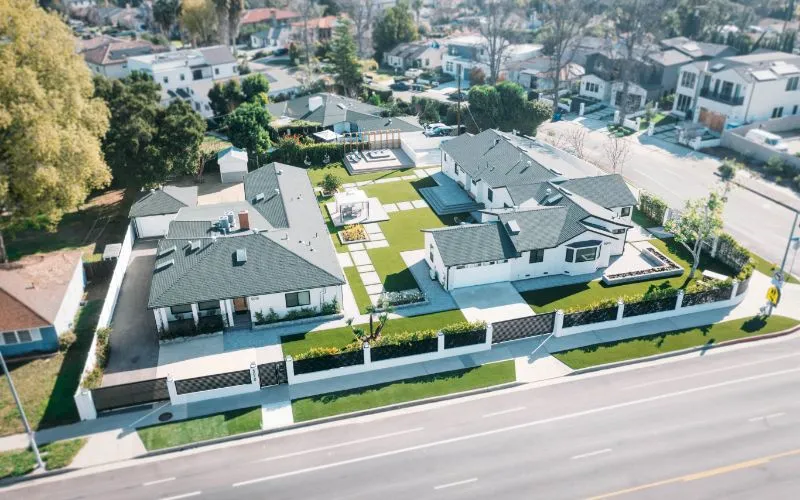Shopping addiction treatment provides tools to manage impulsive spending and address emotional triggers. Cognitive-behavioral therapy helps individuals understand the psychological factors behind their behavior, while financial counseling supports better money management. Programs foster emotional stability and self-awareness, empowering individuals to maintain a balanced, sustainable lifestyle.
Ads
More Info
Advertisement Disclosure
Our website is funded by advertisers who pay for prominently labeled placements.
Read More10 Rehab Centers were found
Filters
Locations
- Los Angeles(+98)
- Culver City(+14)
- Westlake Village(+13)
- Woodland Hills(+11)
- Beverly Hills(+10)
- Santa Monica(+9)
- Sherman Oaks(+7)
- West Hollywood(+6)
- Malibu(+5)
- Chatsworth(+5)
- Pasadena(+5)
- Encino(+5)
- Redondo Beach(+4)
- Lancaster(+4)
- Reseda(+4)
- Studio City(+4)
- Northridge(+3)
- San Mateo(+3)
- Lynwood(+3)
- Vernon(+3)
- Van Nuys(+3)
- Tarzana(+3)
- North Hollywood(+3)
- Glendale(+3)
- Gardena(+3)
- Riverside(+3)
- Granada Hills(+2)
- Shadow Hills(+2)
- Venice(+2)
- Orange County(+2)
- Pomona(+2)
- West Hills(+2)
- Valley Village(+2)
- Burbank(+2)
- Brentwood(+2)
- Long Beach(+2)
- Sun Valley(+1)
- Torrance(+1)
- San Jacinto(+1)
- San Pedro(+1)
- Upland(+1)
- Whittier(+1)
- Toluca Lake(+1)
- Thousand Oaks(+1)
- Simi Valley(+1)
- Mission Viejo(+1)
- Acton(+1)
- Beaumont(+1)
- Wilmington(+1)
- Panorama City(+1)
- Anaheim(+1)
- Laguna Hills(+1)
- Inglewood(+1)
- Alhambra(+1)
- Rosemead(+1)
- Maywood(+1)
- Manhattan Beach(+1)
- Monterey Park(+1)
- Claremont(+1)
- Covina(+1)
- La Puente(+1)
- Pico Rivera(+1)
- San Fernando(+1)
- Azusa(+1)
- Santa Fe Springs(+1)
- Glendora(+1)
- Agoura Hills(+1)
- El Segundo(+1)
- Duarte(+0)
- Sunland(+0)
- Downey(+0)
- Cudahy(+0)
- El Monte(+0)
- Compton(+0)
- Hermosa Beach(+0)
- Cerritos(+0)
- Calabasas(+0)
- Bellflower(+0)
- Bell Gardens(+0)
- Avalon(+0)
- Arcadia(+0)
- Altadena(+0)
- Paramount(+0)
- South El Monte(+0)
- Walnut(+0)
- West Covina(+0)
- Santa Clarita(+0)
- San Gabriel(+0)
- San Dimas(+0)
- Rolling Hills(+0)
- Orange(+0)
- Hawaiian Gardens(+0)
- Palmdale(+0)
- Norwalk(+0)
- Montebello(+0)
- Lakewood(+0)
- South Pasadena(+0)
- Carson(+0)
- Hawthorne(+0)
Conditions
- Drug(+278)
- Alcohol(+219)
- Mental Health(+195)
- Opioid(+193)
- Cocaine(+184)
- Trauma(+180)
- Methamphetamine(+177)
- Benzodiazepines(+174)
- Heroin(+173)
- Prescription Drugs(+159)
- Depression(+152)
- Anxiety(+149)
- Xanax(+145)
- Synthetic Drugs(+138)
- PTSD(+133)
- Adderall(+131)
- Marijuana(+112)
- Bipolar(+109)
- Ecstasy(+104)
- MDMA(+99)
- Behavioral Health(+93)
- LSD(+93)
- Psychedelics(+91)
- Fentanyl(+71)
- Stress(+71)
- OCD(+69)
- Personality Disorders(+63)
- ADHD(+61)
- Gambling(+38)
- Eating Disorders(+35)
- Anorexia(+34)
- Binge Eating Disorder(+34)
- Bulimia(+33)
- Schizophrenia(+32)
- Gaming(+28)
- Internet Addiction(+27)
- Sex Addiction(+25)
- Burnout(+23)
- Pornography(+22)
- Shopping(+10)
- Narcissism(+8)
Insurances
- BlueCross BlueShield(+129)
- Aetna(+126)
- Anthem(+105)
- Cigna(+105)
- United Healthcare(+66)
- Humana(+63)
- Optum(+53)
- Medicaid(+53)
- MHN(+51)
- Magellan Health(+47)
- Kaiser Permanente(+39)
- Medicare(+31)
- GEHA(+31)
- ComPsych(+29)
- Highmark(+25)
- AmeriHealth(+13)
- Tufts Health(+11)
- Oscar(+9)
- CareFirst(+9)
- Molina Healthcare(+8)
- Intermountain Healthcare(+6)
- Beacon Health Options(+2)
- UMR(+2)
- NYSHIP(+2)
- ILWU(+2)
- Geisinger(+2)
- Empire Life(+2)
- Empire BCBS(+2)
- Bright Health(+2)
- GuideWell(+1)
Therapies

$30,000-$50,000

$1,50

$40,000/month - 30 days

N/A

$5,000 - $34,500 - 30 days

$7,500 - $45,000 - 5-30+ days
Shopping Addiction Treatment in Los Angeles
Shopping addiction, also known as compulsive buying disorder (CBD), is a behavioral addiction characterized by an uncontrollable urge to shop, often leading to financial problems, emotional distress, and strained relationships. While shopping is a normal and sometimes necessary activity, for some individuals, it becomes a way to cope with stress, boredom, loneliness, or low self-esteem, resulting in compulsive spending and excessive debt.
Shopping addiction is often misunderstood because spending money is socially acceptable and even encouraged. However, compulsive shopping can lead to financial ruin, emotional instability, and even co-occurring mental health issues such as anxiety or depression.
Los Angeles offers specialized shopping addiction treatment programs that help individuals regain financial control, address emotional triggers, and develop healthier spending habits.
Understanding Shopping Addiction
Shopping addiction follows a repetitive pattern similar to other behavioral addictions:
- Emotional distress or boredom – Feeling anxious, lonely, or stressed triggers a desire to shop.
- Impulse to buy – An overwhelming urge to shop arises, often justified as a reward or necessity.
- Temporary satisfaction – A short-lived rush of excitement or relief occurs after making a purchase.
- Guilt and regret – Feelings of shame, guilt, or financial stress follow.
- Cycle repeats – Shopping continues as a way to escape negative emotions.
For many individuals, shopping addiction is not about needing new items—it is about the emotional high and distraction from deeper personal struggles.
Signs That Shopping Addiction Treatment is Needed
Shopping addiction can be difficult to recognize because spending is a normal part of life. However, certain behaviors indicate a compulsive shopping problem:
- Spending more money than planned and struggling to stop shopping.
- Hiding purchases or lying about spending to family or friends.
- Feeling anxious, guilty, or regretful after shopping.
- Using shopping as a way to escape stress, sadness, or boredom.
- Buying unnecessary items that go unused.
- Maxing out credit cards, accumulating debt, or borrowing money to shop.
- Struggling with financial consequences such as unpaid bills or financial instability.
If shopping is causing financial hardship, emotional distress, or relationship conflicts, seeking treatment can help break the cycle.
Effective Shopping Addiction Treatment Approaches
Shopping addiction is often linked to impulse control issues, emotional regulation difficulties, and underlying mental health conditions. Treatment focuses on changing thought patterns, improving financial awareness, and developing healthier coping mechanisms.
Cognitive behavioral therapy helps individuals identify the emotional triggers behind shopping urges and develop alternative coping strategies. Therapy focuses on replacing impulsive buying behaviors with mindful spending habits.
Financial counseling is an important part of treatment, helping individuals create realistic budgets, develop financial responsibility, and work through debt recovery. Many individuals struggling with compulsive shopping need structured financial plans to regain stability.
Mindfulness and impulse control training teach individuals how to recognize cravings to shop and respond in a healthier way. Learning to pause before making a purchase can help disrupt compulsive behaviors.
Support groups such as Shopaholics Anonymous (SA) provide peer support, accountability, and shared experiences from others in recovery. Many shopping addiction treatment centers in Los Angeles incorporate group therapy as part of their programs.
Behavioral modification therapy helps individuals set spending limits, use cash instead of credit, or restrict access to online shopping platforms to regain financial control.
For individuals with co-occurring mental health conditions such as depression or anxiety, dual diagnosis treatment ensures that both emotional and behavioral aspects of shopping addiction are addressed.
Identifying and Managing Triggers
Many individuals with shopping addiction use spending as a coping mechanism. Identifying emotional and situational triggers is crucial for long-term recovery.
Some common shopping addiction triggers include:
- Feeling stressed, lonely, or emotionally overwhelmed.
- Boredom or lack of fulfillment in daily life.
- Social pressure or exposure to advertising that encourages spending.
- Low self-esteem and the belief that purchases will improve self-worth.
- Access to easy credit, discounts, or shopping rewards programs.
Therapy helps individuals develop healthier coping mechanisms such as exercise, social activities, creative hobbies, or meditation to replace the emotional need to shop.
The Role of Financial Responsibility in Recovery
For many individuals, shopping addiction leads to serious financial struggles. Part of treatment involves:
- Developing a realistic budget to track spending and control financial habits.
- Limiting access to credit cards or setting strict spending limits.
- Paying off accumulated debt in structured, manageable steps.
- Building healthy financial habits such as saving money instead of spending impulsively.
By addressing financial consequences alongside emotional recovery, individuals can rebuild stability and prevent future relapse.
Rebuilding Relationships and Emotional Well-Being
Shopping addiction can damage trust in relationships, especially when secret spending, debt, or financial struggles are involved. Therapy helps individuals:
- Communicate openly with loved ones about spending habits.
- Develop healthy boundaries regarding finances in relationships.
- Rebuild trust by demonstrating financial responsibility.
- Find emotional fulfillment outside of material possessions.
Many individuals find that once they break free from compulsive shopping, they experience greater emotional stability, self-confidence, and deeper connections with others.
Long-Term Recovery and Relapse Prevention
Since shopping addiction is often driven by emotional needs, long-term recovery requires consistent self-awareness, discipline, and lifestyle adjustments.
Some key relapse prevention strategies include:
- Tracking expenses and reviewing financial goals regularly.
- Avoiding high-risk environments such as malls, online shopping platforms, or impulsive sales.
- Finding fulfilling activities that replace the emotional void filled by shopping.
- Continuing therapy or support groups for accountability.
- Developing self-discipline in financial decision-making.
With the right support and strategies, individuals can regain financial freedom and build a healthier relationship with spending.
Finding Shopping Addiction Treatment in Los Angeles
Los Angeles offers a variety of treatment options for shopping addiction, including:
- Outpatient therapy for behavioral change and financial coaching.
- Financial recovery programs to address debt and spending habits.
- Shopaholics Anonymous (SA) meetings for peer support.
- Cognitive behavioral therapy programs specializing in compulsive behaviors.
Seeking treatment for shopping addiction is not about eliminating spending—it’s about regaining control, making mindful financial decisions, and prioritizing emotional well-being. Many treatment centers in Los Angeles offer free consultations to help individuals begin their recovery journey.
Frequently Asked Questions
Is shopping addiction a real disorder?
Can shopping addiction be treated without quitting shopping entirely?
How long does shopping addiction treatment take?
Are there financial recovery programs for shopping addiction in Los Angeles?
Ads
More Info
Advertisement Disclosure
Our website is funded by advertisers who pay for prominently labeled placements.
Read More






































